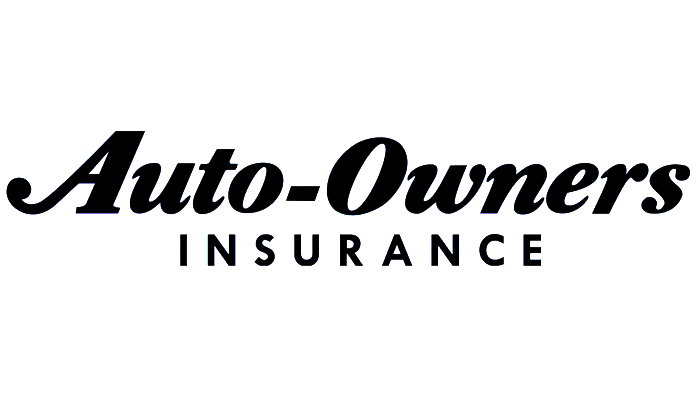A common piece of financial advice is to always buy used cars or, at least, drive your car until it is more expensive to maintain it than to buy a new car. The reason this advice is so popular is because there are some significant financial advantages depending on the type of car you own.
In most cases, drivers can save money by buying an older vehicle that doesn’t need a loan or lease. Also, it is usually cheaper to insure an older car than a newer one, especially since old cars may not need a full-coverage policy. Drivers can save even more money on their car insurance by comparing quotes between multiple companies.
Best insurance for older cars
According to our research, GEICO and Auto-Owners have the best cheap car insurance for liability-only policies for older cars. A liability-only policy means you are covered for bodily injury and property damage you cause to other people (but you don’t have any coverage for damage to your own car), so it’s best for drivers who can afford to repair their car or buy a new car if theirs is damaged.
Best full-coverage car insurance for older cars
For drivers who still need full coverage for an older vehicle, we found USAA and State Farm offer the best cheap car insurance for full-coverage policies for older cars. That means the policy offers liability, comprehensive, and collision coverage, protecting you from damage you cause to other people and their property as well as paying for damage to your own vehicle.
Cheapest insurance for older cars
When it comes to car insurance for older cars, liability-only coverage is almost always the cheapest option, and it’s a good way to save for drivers who can afford to replace their car out of pocket or who won’t bother replacing their older car if it’s damaged.
Liability-only coverage | Full coverage |
|---|---|
Includes bodily injury and property damage liability coverage for damage you cause to someone else in an at-fault accident | Covers bodily injury and property damage liability as well as damage to your own car, no matter who is at fault in an accident |
Cheaper than purchasing full coverage | More expensive than purchasing liability-only coverage |
May include some additional coverage, like PIP insurance and uninsured motorist coverage, depending on the laws in your state | May include some additional coverage, like rental reimbursement and roadside assistance, depending on what types of coverage you choose |
Required by law in most states | Not required by law (but required by your lender if you finance your car) |
If you choose liability-only car insurance coverage you’ll have to get at least the minimum required coverage in your state, but this often isn’t enough to cover all of the costs after an accident.
We recommend drivers get at least 100/300 levels of liability coverage to make sure they are fully protected in an accident — that means at least $100,000 per person and $300,000 per accident in bodily injury liability coverage.
Here are the minimum levels of car insurance coverage required by state:
State | Required levels of coverage | Average cost for minimum coverage car insurance |
|---|---|---|
25/50/25 | $611 | |
50/100/25 | $433 | |
25/50/15 | $640 | |
25/50/25 | $524 | |
15/30/5 | $601 | |
25/50/15 | $544 | |
25/50/25, UM 25/50 | $949 | |
25/50/10, PIP 15/30 | $988 | |
2550/10, UM25/50/5 | $678 | |
PIP 10, PD 10 | $1,253 | |
25/50/25 | $817 | |
20/40/10, PIP 10 | $424 | |
25/50/15 | $400 | |
25/50/20, UM 25/50 | $558 | |
25/50/25, UM 25/50 | $453 | |
20/40/15 | $317 | |
25/50/25, PIP 4.5, UM 25/50 | $493 | |
25/50/25, PIP 10, UM 25/50 | $931 | |
15/30/25 | $993 | |
50/100/25, UM50/100, MedPay 2 | $448 | |
30/60/15, UM 30/60/15 | $898 | |
20/40/5, PIP 8, UM 20/40 | $612 | |
20/40/10, PIP | $888 | |
30/60/10, PIP 20/20, UM 25/50 | $547 | |
25/50/25 | $543 | |
25/50/10, UM 25/50 | $564 | |
25/50/20 | $497 | |
25/50/25, UM 25/50 | $424 | |
25/50/20, UM 25/50 | $958 | |
25/50/25, PIP 1 | $462 | |
25/50/25, PIP 15/250 | $1,154 | |
25/50/10 | $459 | |
25/50/10, PIP 50, UM 25/50 | $974 | |
30/60/25, UM 60 | $423 | |
25/50/25, PIP 30, UM 25/50 | $406 | |
25/50/25 | $386 | |
25/50/25 | $496 | |
25/50/20, PIP 15, UM 25/50 | $769 | |
15/30/5, PIP 5 | $501 | |
25/50/25, UM 25/50 | $868 | |
25/50/25, UM 25/50 | $779 | |
25/50/25, UM 25/50 | $339 | |
25/50/25 | $460 | |
30/60/25 | $643 | |
25/65/15, PIP 3 | $672 | |
25/50/10, UM 50/100/10 | $380 | |
30/60/20, UM 25/50 | $570 | |
25/50/10 | $619 | |
25/50/25, UM 25/50 | $626 | |
25/50/10, UM 25/50 | $348 | |
25/50/20 | $321 |
You can see that liability coverage isn’t the only type of car insurance required by law in some states. Personal injury protection (PIP), also called no-fault insurance, is required in some states, and so is uninsured/underinsured motorist coverage (UM).
Are older cars cheaper to insure?
Yes, an older car is typically cheaper to insure than a newer vehicle, for two reasons:
Depreciation: Generally speaking, an older car is worth less than a newer car. Because of this, it is usually cheaper to purchase full coverage insurance for an older car than a newer one.
Less coverage: An older car usually needs less car insurance coverage than a newer car. For example, if you financed your new car, you may need to purchase gap coverage to protect yourself in case your car is totaled in an accident while you are still making payments on your car loan. Additionally, you may not need full coverage on an older car if you can afford to replace it out-of-pocket.
Do I need full coverage on an older car?
Maybe, depending on the value of your vehicle. Drivers who can afford to replace their car out-of-pocket in the event of an accident can choose to purchase liability only coverage, while drivers who can’t afford to replace their vehicle should purchase full coverage car insurance.
Keep in mind that full coverage on an older car is usually less expensive than full coverage on a newer vehicle because the value of the car is lower, which means the insurance company is only going to pay out the actual cash value (ACV) of your car after an accident.
For example, someone who owns a 2010 Toyota Corolla may find that their car is only worth about $3,500, depending on the condition of the car and the trim package, and many people don’t feel it is worth it to pay for full coverage insurance if the payout they will receive after an accident is so low.
What's the difference between insurance for an older car and classic car insurance?
Classic car insurance is designed to protect a car that is essentially a collector’s item, not a tool for everyday use. One of the defining characteristics of a classic car is that it doesn’t get used every day.
Classic cars typically only get driven a few hundred miles per year, usually with a limit of no more than 6,000 miles annually. This is why classic car insurance is usually cheaper than a regular auto insurance policy, and why most insurance companies don’t allow you to use a classic car as a daily driver.





